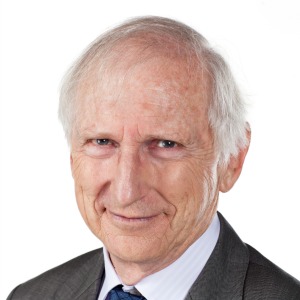We have been bombarded with prognostications regarding the demise of junior lawyers, paralegals and even graduates, writes Bob Murray.

After all, they tell us, the leverage model is dead or dying in most law firms and they won’t be needed. RIP. Artificial intelligence is taking over all the roles that juniors toiled at, we are told.
But I have a sneaking suspicion that this, as far as junior lawyers are concerned, is wrong. I think that if we look at the situation from the view of what science is telling us, the very opposite may happen: it will be the grads and the younger lawyers who may be in great demand in law and firms (including the legal divisions of the big four accounting firms), and the present crop of senior and mid-level partners may be in more danger of being put out to pasture.
The reason for this is what is what we scientists are finding out about two quirks in the human system. We call these 'confirmation bias' and 'the Pavlovian approach'.
Confirmation bias is the tendency of human beings to only really hear, or pay attention to, ideas and pieces of information that confirm their own beliefs and assumptions.
This is what makes us stay in our own information bubble. We surround ourselves with friends and colleagues who think as we do and believe what we believe, constantly reaffirming our biases. We rarely read editorials, for example, that we disagree with. In fact this conformation bias is built into human DNA and we can’t really escape it. The more time you have spent in the same job the more conformation bias you have.
The Pavlovian approach posits that human beings normally only decide to do that which has rewarded them in the past, and ignore data that indicates that a different approach would be preferable. Again, 'Pavlovianism' is hardwired into our genes. It leads, for example, to our predisposition to stick to a past 'success strategy' in our careers even when that strategy is inappropriate in changed circumstances.
For example, a senior associate who becomes a partner because they’ve been an excellent senior associate will tend to continue doing the things that led to their success, even though they may be inappropriate actions for a partner. He or she will also tend to make decisions that are more in line with their previous role. This is one reason why so many partners, in my experience, find it difficult to delegate effectively.
Grads and junior lawyers don’t come with so many of the assumptions and so much of the Pavlovian baggage that senior partners and even senior associates are lumbered with. They find working in new ways easier because they have less reward-based (Pavlovian) commitment to the old. They have no 'success strategy' to fall back on.
Although they come, as we all do, with a lot of assumptions, they have fewer of them simply because they are younger. Bear in mind that prior research has shown that some 70 per cent of all our assumptions and beliefs about anything are wrong, so the less of them you have, the better.
What about experience – doesn’t that count for anything? To be honest, in this day of disruption, no. Wisdom? Again, no. That will be the province of AI. Why go to a doctor who has a great deal of experience when it has been established beyond any doubt that Watson – or its equivalent – is much better at diagnosis, prescribing drugs and recommending treatment? The same is true of the law.
Many of the present crop of partners who are not of retirement age will have to migrate to other jobs where they don’t have a success strategy to hold them back, or confirmation biases and a Pavlovian approach to information and decision-making to prevent them fully accepting, and working with, the new.
And this is not all bad. The human being is a learning machine – learning a new trade will help these partners live longer, raise the level of their immune system and help them avoid Alzheimer's.
Of course they may not make $1 million p.a., but then ex-factory workers can no longer make the $100,000 they made just a short while ago. Welcome to the Trump/Hanson/Brexit-voting club. What the ex-partners lose in pay they may gain in longevity.
They can then leave law to the youngsters who can take it in the new digital direction that it is bound to go. This will enable those organisations that want to remain 'law' firms to keep up with the new technology and survive. For a while.
Those firms that realise that selling law is not the business of the future, and that digitisation will kill them if they remain wholly or even mainly in that business, are, paradoxically, the ones that will need older and more experienced partners.
They will have to earn how to be more general advisers. They will be needed not for their legal ability or knowledge, but for their informed curiosity and the ability and willingness to take the time to understand their clients and their business (see Leading the Future: the Human Science of Law Firm Strategy and Leadership (2016) by myself and Dr Alicia Fortinberry). It will be their life experience, as well as their business experience, that will matter to Millennial entrepreneurs and others.
Law itself, in the future, will be the concern of youth and technology.
Bob Murray is the principal at consultancy Fortinberry Murray and co-author (with Dr Alicia Fortinberry) of Leading the Future: The Human Science of Law Firm Strategy and Leadership.
